Editor's Picks: Red, White & New
Finding something that was made in America is still a nice surprise. According to 2019 data from the U.S. Census Bureau, more than 80% of U.S. imports are goods. Capital goods, like commercial aircrafts and semiconductors, make up $678 billion (27%) of all goods imported. But then, consumer goods come in swinging.
In 2019, the U.S. imported $654 billion of consumer goods. U.S. consumer spending is extremely dependent on these low-cost imported goods. Consumer spending drives almost 70% of the economy. But those American dollars aren’t always reinvested into local communities. According to ABC World News, if every American spent an extra $3.33 on U.S.-made products per year, it would generate nearly 10,000 new jobs in the country.
The push for more domestic manufacturing is unending. Patrick Napurski, president and third-generation owner of Minnesota-based supplier Halls & Company says, “I think the supply chain has had the most impact, but there seems to be a push for buying more items that are made in the USA. As a company that manufactures the majority of our products, it helps our customers with that peace of mind.”
Since 2020, while the world’s scientists and researchers worked to develop a vaccine, economic nationalism ignited. In the U.S., manufacturing struggled to keep up with pandemic-related demands for life-saving products. It became very clear that the U.S. was ill-equipped to quickly manufacture products in a crisis.
It was a predicament the country never wants to be in again. Last year, President Joe Biden signed an executive order to further encourage the federal government’s purchase of U.S.-manufactured goods and services. The “Made In All Of America” initiative is a national commitment to make a historic investment in American products, services, supply chains and the transportation of goods.
A new Reuters-Ipsos poll found 63% of Americans want U.S. agencies to buy American-made products in general, even if they cost significantly more. When it comes to vaccines, 62% think the government should strictly buy U.S.-made.
In March, Biden announced a major change to the Buy American Act. Currently, a product purchased by the federal government with taxpayer dollars can be considered “Made in America” if it contains 55% of components made in the United States. But beginning in October, that threshold will jump to 60%. It will jump again to 65% in 2024 before ultimately leaping to 75% in 2029.
In a statement, Biden said, “We need to reject the defeatist view that the forces of automation and globalization mean we can’t have good-paying union jobs in manufacturing here in America. Our manufacturing future, our economic future, our solutions to the climate crisis, they’re all going to be made in America.”
According to a survey by the Reshoring Institute, nearly 70% said that they prefer American-made products. More than 83% responded that they would pay up to 20% more for products made domestically. A “Made In America” label also enhances perception.
Over 46% of respondents believe that products manufactured in America are of better quality than those manufactured in other countries. But, according to the same survey, there was no evidence offered that American-made products are better. Napurski says, “Yes, I believe they do help set us apart, and we look for it as much as we can in our sourcing practices.”
The novelty of American-made products won’t wear off anytime soon. Sara Thompson, who works in marketing at Missouri-based supplier Ariel Premium Supply, says, “The difficulty I have observed others discussing often on promotional products industry forums, is finding a balance and flexibility to offer and purchase US-made products. The tradeoff can sometimes be a higher price or different materials.
“Guiding clients to have a realistic expectation of domestically produced products can help smooth the process/transition of buying Made-in-USA. Perhaps for some, a mix of Made-in-USA with other items not made domestically could be reachable goal that could lead to change/while still supporting domestic manufacturing.”
Promo products with that “Made in the USA” label will continue to delight and reassure recipients. Championing red-white-blue may not be new, but clients who offer USA-made products are steps ahead and will only remain relevant.
Homegrown
American-made products are perfect for consumers who wish to reduce their environmental impact. Cheap imports come with an expensive environmental price tag. According to a study by charity CDP, supply chains are responsible for up to four times the greenhouse gas emissions of a company’s direct operations.
Local production for local consumption is the greener choice. Shifting offshoring to the U.S. would help the global environment. For example, about 77% of Apple’s total carbon emissions come from the company’s far-reaching global supply chain, which is mostly comprised of manufacturing sites that Apple neither owns nor directly operates, according to the former head of the Environmental Protection Agency.
Most CEOs (87%) say it’s important for their companies to reduce their environmental footprint, consulting firm PWC reports. But shifting production offshore actually does the opposite. A recent Harvard University study found that by shifting production from China to the U.S., the consuming market, companies can reduce the environmental impact of electricity generation, industrial production and goods transportation.
A recent Nielsen study found that 48% of U.S. consumers would change their buying habits to reduce environmental impacts. Promo pros can help lead the way with ethically sourced, homegrown products.
Made in the USA Products
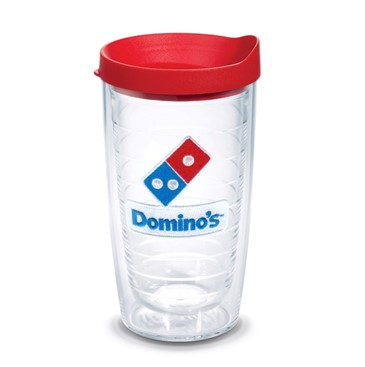
This 16-ounce classic tumbler is made in the USA. This tumbler has the original double wall insulation that helps reduce condensation. Manufactured for clarity, impact strength and durability, this cup features a lifetime guarantee.
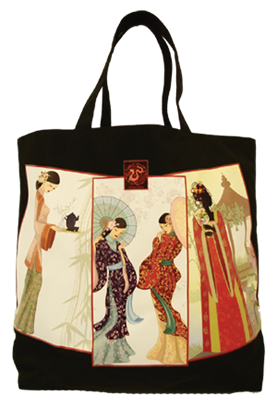
This American-made designer tote bag is a standout gift for any recipient. The unique design makes this bag a potential keepsake to be worn again and again. Perfect for fairs or farmers markets, choose from multiple fabric color options.
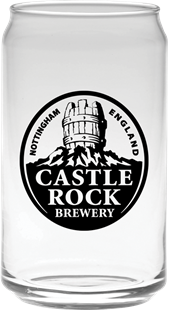
Fun and unique, this 16-ounce soda can glass is the perfect party favor. Made in the USA, it’s a great keepsake for any occasion. With this glass, recipients will remember and use your client’s cup multiple times.
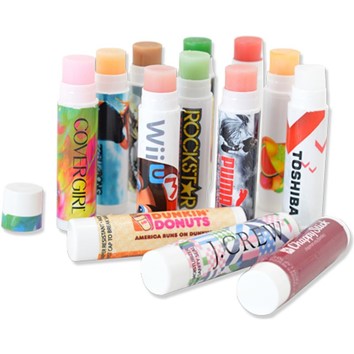
This USA-made lip balm has multiple flavor options to choose from. From flavors like apple pie to blueberry cobbler and chocolate sundae and bubble gum, recipients will want to keep using this lip balm. It has SPF 15, making it perfect for any outdoor event.
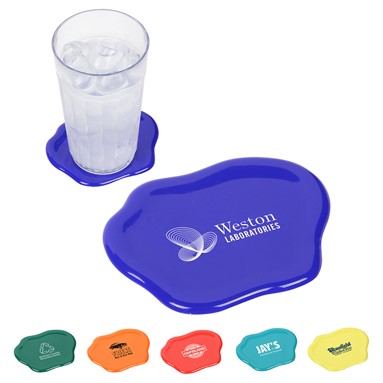
For clients looking to show their fun side, suggest the Splash O' Color coaster. This coaster is made from 50% recycled materials and it’s 100% recyclable. Made in the USA, these coasters are designed to look like spilled paint. Choose from colors like forest green or teal.
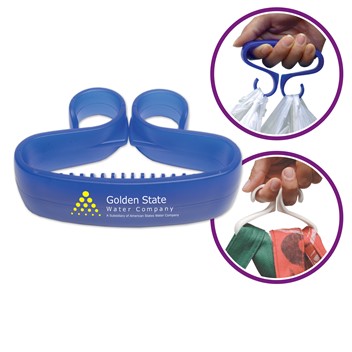
With the Grocery Grab-It, there’s no need to make a second trip. Recipients can easily carry reusable or plastic bags using the grip handle or two fingers. Ideal for tradeshows, grocery stores and farmers markets, it loops groceries together to prevent spill overs in the car.

This USA-made fireplace operates with clean burning solutions, with no soot on the ceiling or smoke when lit. This personal fireplace is fueled by 70% or 91% isopropyl rubbing alcohol. It can be used indoors in a well-ventilated area or outdoors as a mini bonfire. Depending on environment temperature, this mini fireplace has a 45–60-minute burn time.
Get more exposure for your client’s brand with this fresh Basil Planter. It’s a fertile fiber pot that is 100% organic, sustainable, and biodegradable. This includes a soil pod, seed packet, wooden stake and instructions. Simply place the soil pod at the bottom of the pot, add the basil seeds from the packet, water every few days. Seeds are expected to germinate within three weeks.
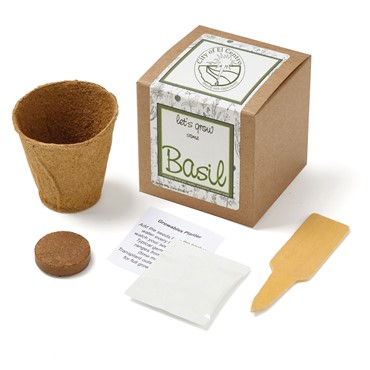
If you have questions about a specific project please contact your rep directly or send an email to hello@gorillamarketing.net.
